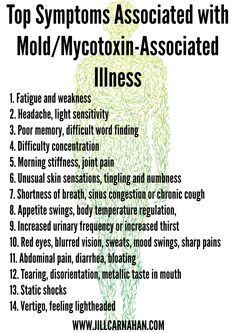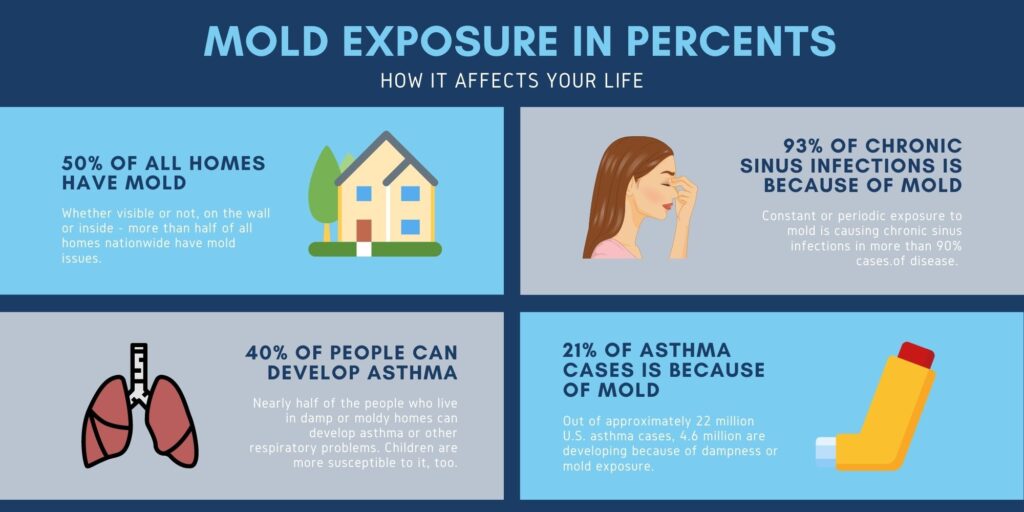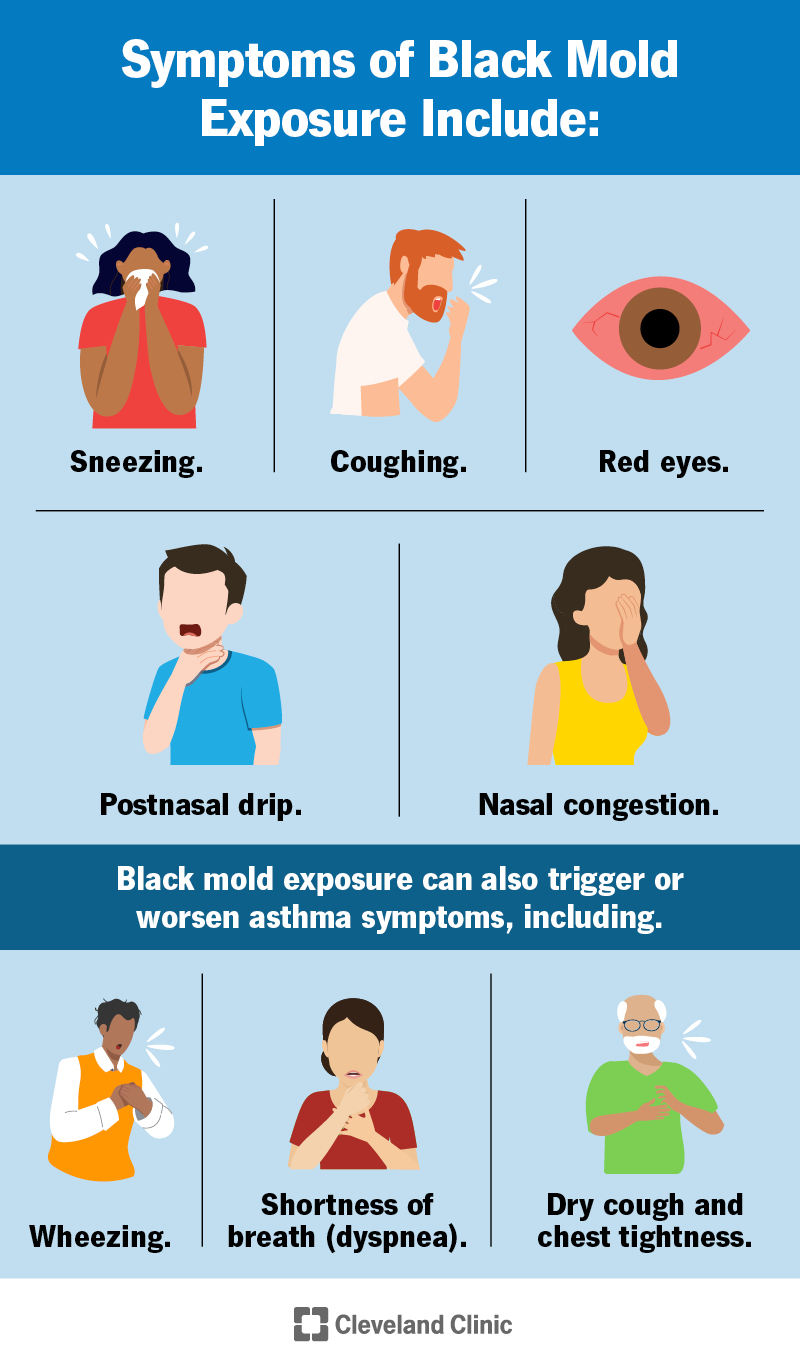In this article, we will explore the symptoms of severe mold exposure and how they can lead to acute health reactions. Mold exposure can have a range of effects on the body, from mild allergies to more severe complications. By understanding the signs and symptoms, you can better identify if mold exposure may be impacting your health. So, let’s take a closer look at the various ways mold can affect your well-being and what you should be on the lookout for.
Symptoms of Severe Mold Exposure
Mold exposure is a common problem that many people may not even be aware of. Mold is present in many environments, both indoors and outdoors, and can have serious consequences for your health if left untreated. In this article, we will explore the symptoms of severe mold exposure and help you identify acute health reactions that may be caused by mold.
Overview of Mold Exposure
Mold is a type of fungi that thrives in warm, humid, and damp environments. It can be found in homes, offices, schools, and other buildings where moisture is present. Mold spores are tiny and can easily become airborne, making them easy to inhale or come into contact with. When mold spores are inhaled or touched, they can cause a range of health issues, especially for individuals who are sensitive or allergic to mold.
Health Issues Associated with Mold Exposure
Exposure to mold can have a variety of health effects, ranging from mild to severe. For most people, minor exposure to mold may only cause mild allergic reactions or irritation. However, for individuals with a weakened immune system, pre-existing respiratory conditions, or a mold allergy, severe mold exposure can lead to serious health issues. Identifying the symptoms of severe mold exposure is crucial in order to seek appropriate medical attention and address any underlying mold problems.
Respiratory Symptoms
One of the most common symptoms of severe mold exposure is respiratory issues. If you are experiencing persistent coughing, wheezing, shortness of breath, chest tightness, or recurring respiratory infections, mold may be the culprit. These symptoms can be particularly problematic for individuals with asthma or other respiratory conditions.
Skin Symptoms
In addition to respiratory issues, severe mold exposure can also manifest as skin symptoms. If you notice rashes, redness, itching, or other skin irritations that do not improve with conventional treatments, it may be worth considering mold exposure as a potential cause. Mold spores can irritate the skin, especially in individuals with sensitive skin or pre-existing skin conditions.

Allergic Reactions
Mold exposure can trigger allergic reactions in some individuals. Common allergic reactions to mold include sneezing, runny or stuffy nose, itchy or watery eyes, and sinus congestion. These symptoms can be similar to those experienced with seasonal allergies. However, if your symptoms persist or worsen over time, it might be worth investigating potential mold exposure.
Neurological Symptoms
Severe mold exposure can also affect the nervous system, leading to a variety of neurological symptoms. Some individuals may experience headaches, dizziness, difficulty concentrating, memory problems, confusion, or even mood swings. These symptoms can be debilitating and can significantly impact daily life if left untreated.

Digestive Symptoms
In some cases, mold exposure can lead to digestive symptoms. If you are experiencing nausea, vomiting, diarrhea, stomach pain, or other gastrointestinal issues that persist even after ruling out other common causes, mold exposure may be a potential factor. Mold toxins can affect the digestive system, causing inflammation and disrupting normal digestive processes.
Immune System Reactions
Individuals with a weakened immune system may be more susceptible to severe mold exposure and can experience a range of immune system reactions. These reactions can include frequent infections, chronic fatigue, fevers, joint pain, and swollen lymph nodes. If you have a compromised immune system and are experiencing any of these symptoms, it is important to consider the role of mold exposure and seek appropriate medical advice.

Reproductive System Symptoms
While the research is limited, some studies suggest that mold exposure may have implications for the reproductive system. Women experiencing recurrent or unexplained fertility issues, menstrual irregularities, or hormonal imbalances may want to explore the possibility of mold exposure as a potential cause. However, further research is needed to fully understand the link between mold exposure and reproductive health.
Environmental Sensitivity
Severe mold exposure can also lead to an increased sensitivity to environmental stimuli. Individuals may develop a heightened sensitivity to chemicals, odors, and even electromagnetic fields. This can make everyday life challenging and may require making adjustments to avoid triggers that can exacerbate symptoms.

Cognitive/Mood Changes
In addition to physical symptoms, severe mold exposure can also affect cognitive function and mood. Some individuals may experience difficulty with concentration, memory, problem-solving, or decision-making. Additionally, mood changes such as increased irritability, anxiety, or depression may be present. These cognitive and mood changes can significantly impact quality of life and should not be ignored.
Other Symptoms to Look Out For
It is important to remember that each individual may have different reactions to mold exposure, and symptoms can vary widely. Other symptoms to be aware of include chronic sinusitis, frequent respiratory infections, unexplained weight loss, persistent fatigue, muscle and joint pain, and sensitivity to light and noise.
In conclusion, severe mold exposure can lead to a variety of acute health reactions that should not be ignored. If you are experiencing any of the symptoms mentioned in this article, it is important to consult with a medical professional to determine if mold exposure may be the underlying cause. Identifying and addressing the source of mold is crucial for your overall health and well-being.
